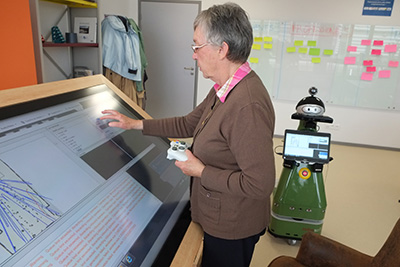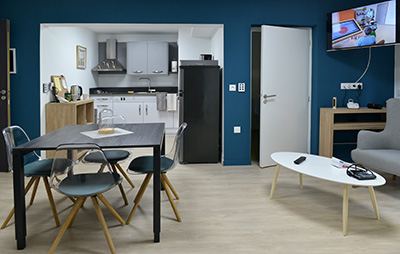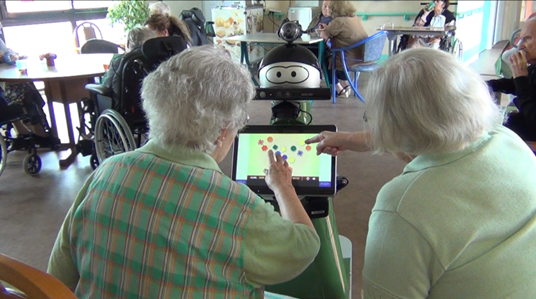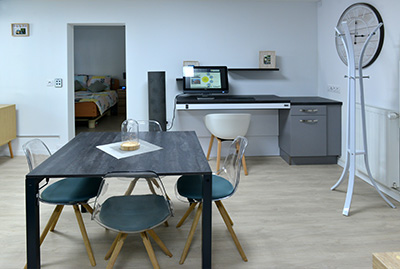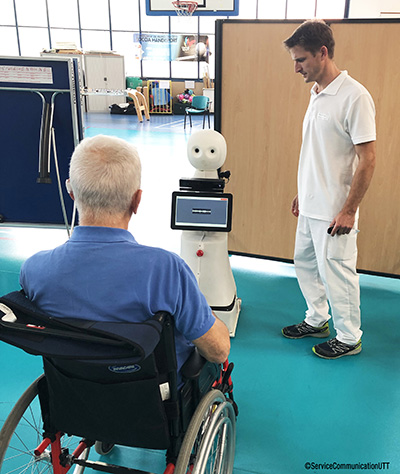In the same section
Participatory design platform for e-health solutions
Through its research platform and multidisciplinary approach, the ActivAgeing Living Lab (LL2A) offers the technological and methodological tools to achieve the “adequate design” of solutions to support older adults’ autonomy, health and well-being. The approach to design is human-centred and participatory, aiming not only at supporting autonomy but actually adding to the dignity and empowerment of the older person. Since its founding in 2013, LL2A has strengthened its international visibility in the field of health and autonomy of the elderly, through the collaboration in various European projects and industry-academia partnerships.
LL2A is located on two geographical sites, one of which is situated within an independent living residence managed by the CCAS of Châlons en Champagne. This unique site at Résidence Clamart is useful for researchers and social work students to study everyday life, and the development of home-based social and healthcare solutions for the elderly, using participatory design and observational methods. One of the preferred methods is video ethnography, which makes it possible to study social interaction and analyze activity. The knowledge gained is useful for designing game-specific mechanisms or understanding well-being, e.g., nutrition.
1. Designing with the users
LL2A is a participatory design laboratory, which innovates – together with the users – so as to achieve the design of adequate services and technologies supporting health and autonomy. The involvement of participants in every step of the innovation process undertaken by the living lab is an essential component of the system.2. Two methods for innovation
The living laboratory promotes user involvement in the development of innovative technologies and services preventing frailty of older citizens via two methods: 1. Iterative development – based on the principles of user driven innovation, which offers significant timesaving in the design of technologies and services, and 2. Participatory design and ecosystem – considering the human person in a contextualized and holistic way, with an interest for his/her practices at large, and values.3. Expertise : Design and evaluation
LL2A’s expertise specializes in:- Evaluating the social appropriation of technological solutions for health and autonomy of the elderly,
- Designing technologies for all types of end users to improve and support actions of care and monitoring.
4. Network of Living Labs
As a member of international or French networks of Living Labs (ENoLL – European Network of Living Labs, Forum des Living Labs Santé et Autonomie, France Living Labs), the Living Lab ActivAgeing benefits from the support of other Living Labs, either in terms of methodology or application domain : participatory design, e-health, autonomy, active and healthy ageing. Together with its research platform (unique in the French Grand-Est region), the LL2A offers a favourable context to the design and iterative evaluation of solutions to support the autonomy of elderly people, that actually have an impact.5. Achieving adequate design
We design technologies that are usable, useful, and actually add to the dignity and empowerment of the older person. This “adequate design” is achieved through human-centred design, and participatory design, i.e including “end-users” – whether the older person, family caregivers, or care or health professionals – by co-designing with them solutions that have meaning for them, and corresponds to their needs and values.6. Multidisciplinarity
Our research perspectives within the M2S and Tech-CICO research teams at UTT is multidisciplinary. It combines methodological and technological approaches of surveillance and safety of socio-technical systems to ethics by design, which together, are applied to the monitoring of persons within the general framework of ageing and self-reliance, thus integrating organizational, social, customary and ethical constraints. Through its unique research platform, the ActivAgeing living lab makes it possible to ensure all the steps of a design cycle. Apart from the participatory design, LL2A’s other specificity and added value is how it usefully integrates real-time video analysis, mobile eye-tracking and 3-D human movement analysis system, in the design and evaluation of these health or Ambient Assisted Living solutions.Key research topic: social robotics
LL2A has been involved since 2013 in several exploratory research projects around the use, acceptability and design of mobile social robots for elderly. LL2A has gained experience in different projects around the use of different types of robots in different use case scenarios (list available below). LL2A made significant scientific contribution the topic of acceptability of social robots in residence homes, and Human Robot Interaction criteria, like usability and accessibility, thus contributing efficiently to applied research, but also to developing conceptual and methodological reflection around this new research domain.Scientific contribution
Putting mobile social robots in residence homes for long-term field studies is pretty new, in France, and for sure is quite an innovation in the Troyes region. Several scientific publications have been published in international conferences or peer-reviewed journals.Publications co-authored by LL2A
Date of update 21 October 2020
Partners

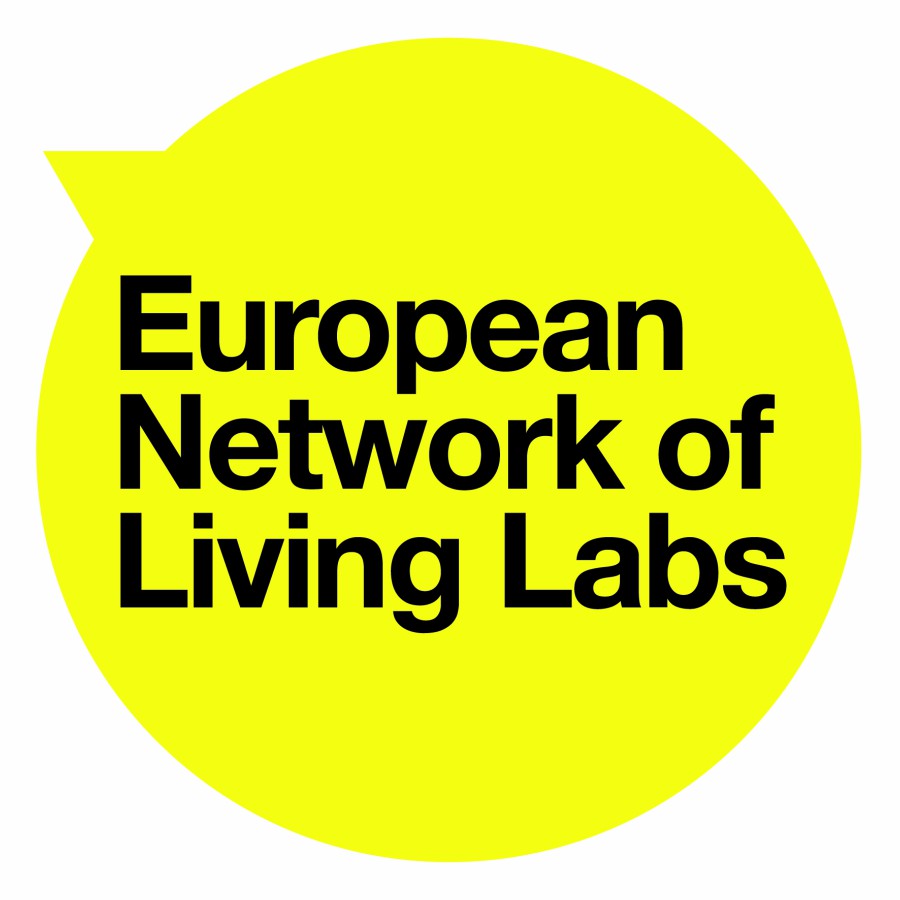
Pictures
